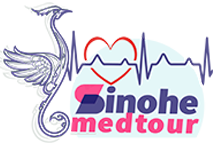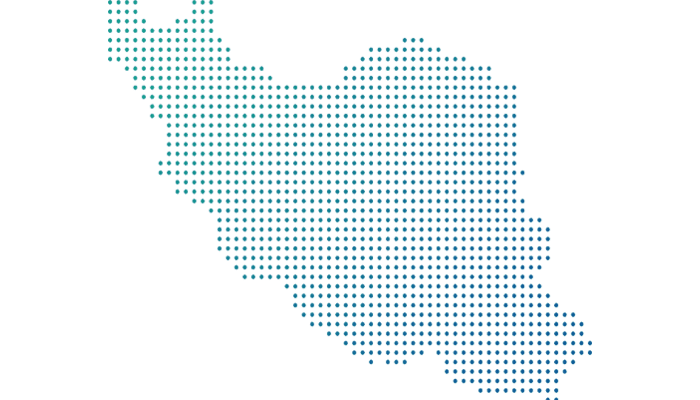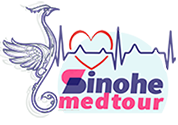FERTILITY TREATMENTS
Fertility treatments are interventions aimed at helping individuals or couples achieve pregnancy when they face challenges conceiving naturally. Common fertility treatments include:
Ovulation Induction: Stimulating the ovaries to produce more eggs, increasing the chances of conception.
Intrauterine Insemination (IUI): Placing sperm directly into the uterus during the woman’s fertile window to enhance the chances of sperm reaching the egg.
In Vitro Fertilization (IVF): This involves combining an egg and sperm outside the body and then implanting the fertilized embryo into the uterus.
Egg or Sperm Donation: Using donated eggs or sperm if one partner has fertility issues.
Surrogacy: In cases where a woman cannot carry a pregnancy, another woman (the surrogate) carries and delivers the baby.
Assisted Reproductive Technologies (ART): A broad category that includes various advanced fertility treatments such as intracytoplasmic sperm injection (ICSI) and preimplantation genetic testing (PGT).
The choice of fertility treatment depends on the underlying cause of infertility, the age of the individuals involved, and their medical history. It’s crucial for individuals or couples experiencing fertility issues to consult with reproductive specialists to determine the most appropriate course of action for their specific situation.
Why Iran?
High success rate and low cost of fertility treatment in Iran are the two main reasons Iran is currently one of the best countries patients can choose for their infertility problems. Iran is also a low-cost travel destination and a safe country to travel, not to mention the friendly and hospitable Iranian people who welcome you with open arms.
Why SinouheMedTour?
SinouheMedTour saves you all the inconveniences of making the necessary arrangements, including, but not limited to, getting a visa, booking a doctor’s appointment, booking a hotel, shuttling between hotel and clinic, etc. Moreover, we work with the best fertility clinics and specialists in Iran.
How much is fertility treatment in Iran?
The cost of fertility treatment in Iran is very reasonable compared to most other countries. For example, a cycle of IVF in Iran costs from $3000, which is one-fourth of the average price of an IVF cycle in Canada. We will quote you the updated prices of different fertility treatments in Iran upon request.
Why Iran?
High success rate and low cost of fertility treatment in Iran are the two main reasons Iran is currently one of the best countries patients can choose for their infertility problems. Iran is also a low-cost travel destination and a safe country to travel, not to mention the friendly and hospitable Iranian people who welcome you with open arms.
Why SinoheMedTour?
SinoheMedTour saves you all the inconveniences of making the necessary arrangements, including, but not limited to, getting a visa, booking a doctor’s appointment, booking a hotel, shuttling between hotel and clinic, etc. Moreover, we work with the best fertility clinics and specialists in Iran.
How much is fertility treatment in Iran?
The cost of fertility treatment in Iran is very reasonable compared to most other countries. For example, a cycle of IVF in Iran costs from $3000, which is one-fourth of the average price of an IVF cycle in Canada. We will quote you the updated prices of different fertility treatments in Iran upon request.
FERTILITY TREATMENTS
FERTILITY TREATMENT IN IRAN: ALL YOU NEED TO KNOW
Iran is the top country in the field of fertility treatment in the Middle East and one of the most developed in the world. Thanks to the country’s religious leaders’ approval of the assisted reproductive technologies and the government’s social and population policies during the last decades, Iran has made giant progress in fertility treatments.
In the past, Iranian couples suffering from infertility problems had to travel abroad to receive treatment, but today Iran has become a hot destination for infertile men and women from other countries. The reasonable costs of fertility procedures in Iran compared with the exorbitant prices in some other countries, as well as the high quality of such services in the country are the key reasons for the popularity of fertility treatments in Iran.
Iran currently enjoys more than 70 specialized fertility centers that offer various services to couples who cannot have a child on their own — including infertility diagnosis, expert genetic consultation, and different treatments such as IVF, for instance. With its remarkable advance in IVF since the first baby was born in the country in 1988 through this technology, Iran has been drawing couples from all around the Middle East, and even countries as far as Australia and Indonesia.
WHY IS IRAN SO SUCCESSFUL IN INFERTILITY TREATMENT?
Assisted technologies for fertility in men and women have been embraced by Shiite religious authorities in Iran more openly than other Sunni countries where some forms of third-party fertility treatments such as sperm donation and egg donation are still frowned upon.
While Sunni religious leaders in other Muslim countries have only approved of procedures that don’t involve a third party – egg, sperm, and embryo donation – Iran’s leader and Shiite marja (religious authority), Ali Khamenei, gave a fatwa legitimizing such procedures under certain conditions. That’s why many couples from Sunni countries are increasingly heading to Iran to undergo fertility procedures.
Iran’s fertility clinics are currently armed with the latest technologies and experienced infertility specialists serving infertile couples from different countries. According to an article titled “The Islamic Republic of Baby-Making” published by the Foreign Policy magazine, an Oxford University professor and the founder of the Fertility and Reproduction Studies Group (FRSG), Soraya Tremayne believes that “Iran is surging ahead using [these technologies] in all their forms, going places where the Sunni countries in the region cannot follow.”
Dr. Ahmad Vosouq, an official at Iran’s Royan Institute – a prestigious research and educational institute dedicated to stem cell research, infertility treatment, and biomedical, translational and clinical researches – says: “currently, remarkable work is being done in the field of infertility in Royan [Institute] such that the lowest fertility chance of couples is used for their fertilization.” He stated that the advanced techniques of egg maturation in females and testicular sperm extraction in men are being used to treat infertility in women and men, respectively.
A contributing factor to the substantial progress in infertility treatment in Iran is the high rate of infertility among Iranian couples. According to a nationwide survey, 20.2 percent of Iranian couples suffer from infertility, which means that 1 out of 5 couples are unable to have a baby on their own. Given that the country has in the past years reversed its population control policy, the government is now encouraging people to have more children, giving infertile couples incentives to have children, including a free cycle of IVF, in accordance with this policy.
THE COST OF FERTILITY TREATMENT IN IRAN
Iran offers the most inexpensive fertility treatments in the Middle East. A cycle of IVF, for example, costs 3500 USD which is much lower than in many countries. Given that many fertility treatments require that couples stay in the country for a few weeks, the cost of lodging and other expenses incurred during their stay become very important.
Since Iran is a cheap country for travelers, with very reasonable accommodation costs, fertility treatment candidates will not have to spend a lot of money on their treatment in Iran. To get a free price quote for fertility treatments in Iran, feel free to contact us.
FERTILITY CLINICS IN IRAN
More than 70 health ministry-accredited fertility clinics and centers are operating in Iran. Iranian fertility centers are either affiliated to hospitals or other research institutions. Fertility clinics in Tehran, Mashhad, Yazd, Isfahan, Shiraz, Tabriz, and other cities of Iran are prepared to provide services to couples from all around the world and create the pleasant experience of having a baby for them.
Fertility treatments offered at Iranian fertility centers include IVF, IVM, IMSI, ICSI, IUI, microscopic testicular sperm extraction (TESE), ovulation induction, PGD, PGS, egg donation, sperm donation, embryo donation, surrogacy, PCOS treatment, etc.
We at AriaMedTour, as the leading medical tourism facilitator in Iran, help you arrange an infertility treatment at one of the best fertility clinics in Iran. To learn more about each clinic’s services, fees, and doctors, contact us via WhatsApp, email (provided at the footer) or the online form (at the top of the page or below).
FREQUENTLY ASKED QUESTIONS ABOUT FERTILITY TREATMENT
If you have had difficulty conceiving a child for 12 months while you have been attempting pregnancy, you should visit a specialist for diagnosis. If you are diagnosed with any kind of fertility disorder, then there will be some fertility options in front of you.
It is recommended that you start with the simplest and least expensive treatments, i.e. medications. If fertility drugs prove ineffective, then other options should be considered, including hormone therapy, surgery, and finally Assisted Reproductive Technologies (ART), such as IVF and IVM.
Choosing which fertility treatment is best for you depends on many factors, and it will be decided or recommended by your doctor depending on several factors, including the cause of infertility, your age, results of medical tests, your preferences, etc.
There are many women who became pregnant with the help of fertility treatments or had a baby through other methods such as surrogacy. Although the chance of becoming pregnant with fertility treatments is not 100 percent, the good news is that there are many options than can be tried in case one doesn’t work.
Keep in mind that the sooner you start treatment the bigger the chance for success. Studies have shown that the success rate of IVF in women under 35 is as high as 45% while women over 40 have a dramatically lower chance of getting pregnant through this procedure.
Ovulation disorders are the main causes of female infertility, for which ovulation induction treatments might help fix the problem. Other causes can be:
- blocked fallopian tubes which is caused by endometriosis, pelvic inflammatory disease, or surgery for an ectopic pregnancy,
- problems with the uterus or cervix
- uterine fibroids.
Male infertility is typically caused by either problems with sperm production (no or too few sperms) or problems with the sperm’s ability to reach an egg and fertilize it. This conditions can be congenital or acquired later in life due to injury or illness, e.g. cystic fibrosis.




